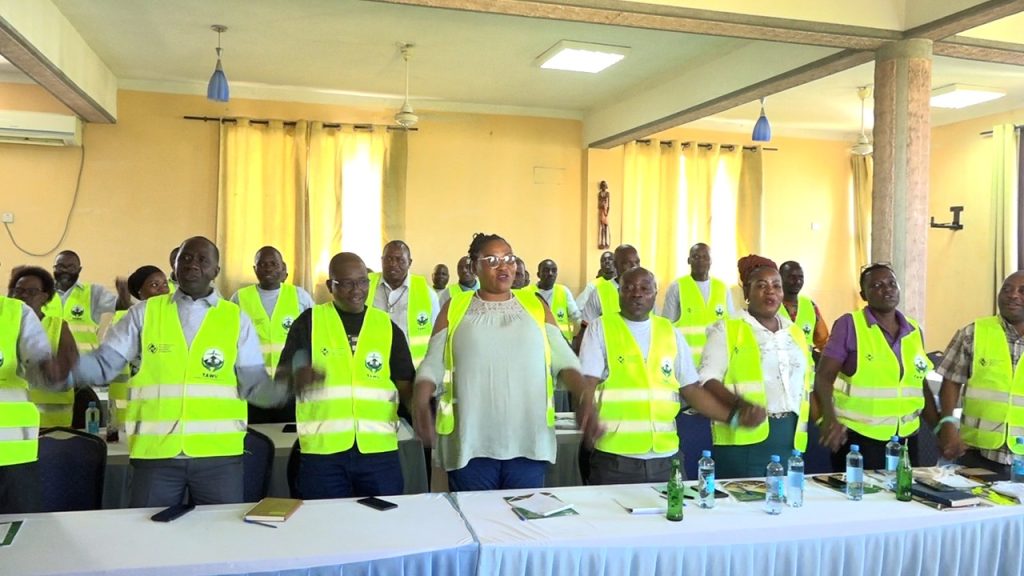
Across Kenya, road transport workers — truck drivers, long-distance bus crews, conductors — are the engine of our economy. They move goods and people, connect markets, and sustain livelihoods. Yet behind the movement of every product and every passenger is a worker whose rights, safety, and dignity are routinely overlooked.
Last week, the Transport Workers Union of Kenya (TAWU-Kenya) convened a national consultative meeting with road transport shop stewards from across the country. The purpose was clear:
➡️ To address worsening working conditions in the sector and their direct link to the growing number of road crashes on Kenyan roads.
➡️ To build consensus among workers on pushing the government to adopt a Safe Rates system.
A driver attending the meeting said : “We are being forced to choose between our lives and our jobs.”
During the meeting, shop stewards shared shocking realities:
- Drivers are paid per trip or per load, not per hour — pushing them to work dangerous hours.
- Most are denied adequate rest and are pressured to “chase trips.”
- Some sleep in trucks for days or weeks without proper facilities.
- Drivers bear the cost of fuel shortages, vehicle breakdowns, or delays — yet still face pay deductions if they do not meet unreasonable timelines.
- Harassment by police and insecurity on highways remain constant threats.
A statement from a steward summed it up simply:
“We don’t speed because we want to. We speed because we are paid to.”
When pay is based on completion of trips and not on time worked, fatigue becomes normal, and risk becomes part of the job.
The Road Safety Crisis in Kenya
According to NTSA data, 3,397 people lost their lives in road crashes in the first nine months of 2025 — a rise from the same period last year.
Commercial vehicles, especially long-distance trucks and buses, are consistently involved in fatal accidents.
Fatigue is among the leading causes.
Yet discussions on road safety in Kenya focus mainly on:
- Police crackdowns,
- Speed governors,
- Compliance checks, and
- Blame directed at drivers.
What is never addressed is what forces drivers to take risks in the first place.
The Missing Link: Decent Work = Safe Roads The union meeting concluded that road safety is not just a transport issue — it is a labour issue.
Drivers face:
- Unsafe working hours
- Low and unpredictable pay
- Lack of social protection
- Unfair deductions and unrealistic targets from employers
- Poor working conditions translate to unsafe roads.
“You cannot have safe roads when the people operating those roads are unsafe at work.” — TAWU-Kenya General Secretary Nicholas Ogola
TAWU-Kenya’s Position: Establish a Safe Rates System in Kenya
Following the meeting, TAWU-Kenya is calling for the Government of Kenya — through the Ministry of Labour and NTSA — to introduce a Safe Rates system, which will ensure that drivers are paid fairly and safely.
Under Safe Rates, payment systems must:
- Pay drivers for time worked, not just distance traveled.
- Allow drivers to take mandatory rest periods without losing income.
- Ensure transparency in deductions and premiums.
- Hold transport companies, shippers, and clients accountable for realistic delivery schedules.
This approach aligns with the ILO Guidelines on Decent Work and Road Safety (2019), which Kenya has already endorsed.
What TAWU-Kenya Is Demanding
1. Government recognition of drivers and unions as key stakeholders in road safety policy.
2.Adoption of national Safe Rates regulations to standardize driver compensation and rest time.
3.Enforcement of maximum working hours and mandatory rest periods for all road transport workers.
4.Inclusion of informal and platform-based drivers (e.g., delivery app riders) under labour laws and social protection.
“Decent pay and fair working conditions should not be optional—they should be part of Kenya’s road safety strategy.”
What Happens Next TAWU-Kenya will:
- Engage the Ministry of Labour and NTSA through formal memoranda and consultation requests.
- Mobilize road transport workers for county-level sensitization on Safe Rates.
- Partner with legal, academic, and road safety experts to push for adoption of Safe Rates in policy reform.
Kenya can reduce road accidents — not only by controlling drivers, but by protecting them.
Join the Campaign for Safe Rates
TAWU-Kenya invites all road transport workers, stakeholders, and supporters to join the movement for decent work and safer roads.
